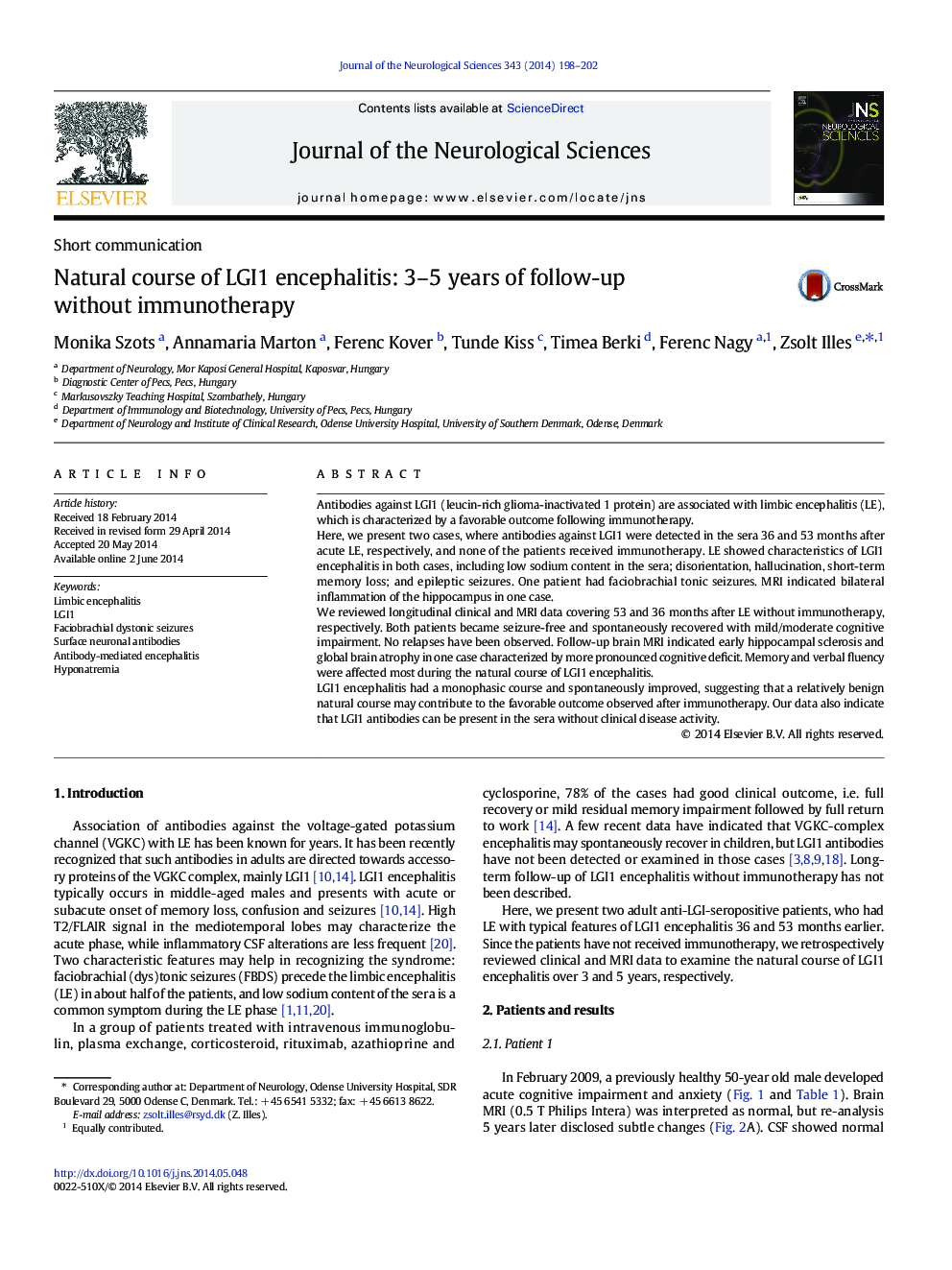| Article ID | Journal | Published Year | Pages | File Type |
|---|---|---|---|---|
| 1913495 | Journal of the Neurological Sciences | 2014 | 5 Pages |
•We report the natural course of LGI encephalitis in 2 cases.•LGI1 encephalitis improved significantly without immunotherapy over the years.•The natural course of LGI1 encephalitis may be relatively benign.•Despite of significant improvement cognitive deficits remained.•Rapid global brain atrophy has developed in one case.
Antibodies against LGI1 (leucin-rich glioma-inactivated 1 protein) are associated with limbic encephalitis (LE), which is characterized by a favorable outcome following immunotherapy.Here, we present two cases, where antibodies against LGI1 were detected in the sera 36 and 53 months after acute LE, respectively, and none of the patients received immunotherapy. LE showed characteristics of LGI1 encephalitis in both cases, including low sodium content in the sera; disorientation, hallucination, short-term memory loss; and epileptic seizures. One patient had faciobrachial tonic seizures. MRI indicated bilateral inflammation of the hippocampus in one case.We reviewed longitudinal clinical and MRI data covering 53 and 36 months after LE without immunotherapy, respectively. Both patients became seizure-free and spontaneously recovered with mild/moderate cognitive impairment. No relapses have been observed. Follow-up brain MRI indicated early hippocampal sclerosis and global brain atrophy in one case characterized by more pronounced cognitive deficit. Memory and verbal fluency were affected most during the natural course of LGI1 encephalitis.LGI1 encephalitis had a monophasic course and spontaneously improved, suggesting that a relatively benign natural course may contribute to the favorable outcome observed after immunotherapy. Our data also indicate that LGI1 antibodies can be present in the sera without clinical disease activity.
